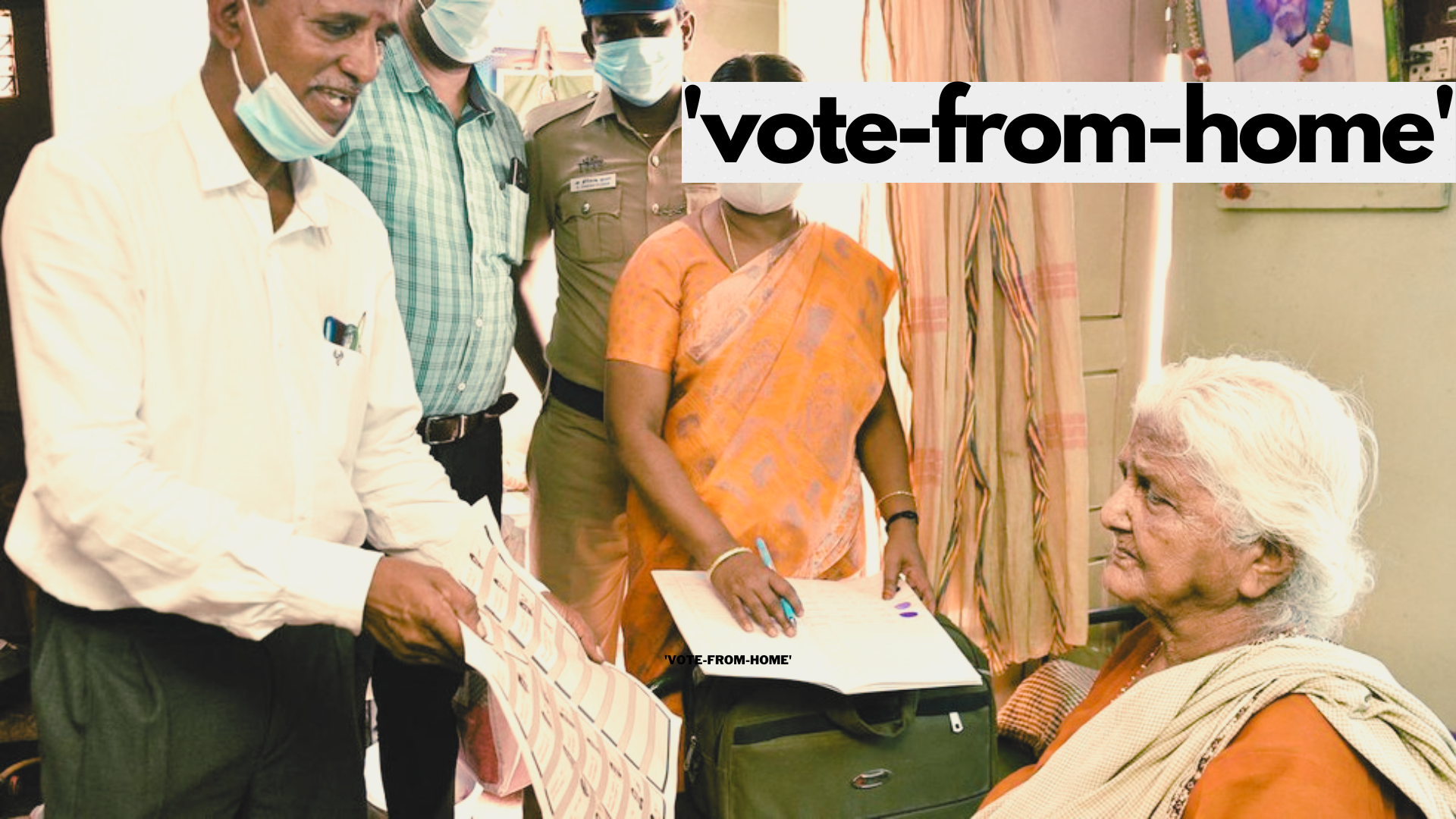

In a significant move towards inclusivity and accessibility, the Election Commission of India has announced the introduction of ‘vote-from-home’ facilities for citizens above 85 years of age and persons with disabilities for the upcoming Lok Sabha elections. This initiative marks the first time such a provision has been made, aiming to ensure that every eligible voter can participate in the democratic process without barriers.
Home voting for the initial phase of Lok Sabha elections in Rajasthan is all set to commence starting today. The state’s chief electoral officer, Praveen Gupta, revealed that more than 58,000 voters in Rajasthan have opted for home voting, with 35,542 individuals registering for the first phase of Lok Sabha elections.
This newly introduced home voting facility specifically caters to senior citizens above 85 years of age and voters with over 40 percent disability. According to Gupta, the decision to implement home voting was driven by the intention to make elections more inclusive and accessible to all eligible citizens.
Out of the 35,542 registered voters for the first phase of Lok Sabha polls in Rajasthan, a significant portion comprises senior citizens and persons with disabilities. Specifically, 26,371 are senior citizens, while 9,171 fall under the category of persons with disabilities, as stated by Gupta.
“Thus far, over 58,000 eligible voters have opted to cast their votes from home. This includes 43,638 senior citizens and 14,385 persons with disabilities,” shared the chief electoral officer.
The process for registering for home voting in the first phase of the Lok Sabha elections was completed by March 27. Subsequently, the returning officers were tasked with sharing the list of registered home voters with all recognised political parties and candidates by April 1.
Special polling teams are being formed to facilitate home voting, and their training is expected to be finalized by April 4. These dedicated teams will visit the residences of registered home voters in the presence of political representatives and candidates to facilitate voting through postal ballots.
For the first phase, home voting will be conducted from April 5 to 14, ensuring that eligible citizens can exercise their voting rights conveniently from their homes.
In addition to the first phase, the registration for home voting for the second phase of elections was completed by April 2. For this phase, approximately 22,500 eligible voters had registered for ‘vote from home’ by March 27. Among them, 17,324 were senior citizens, and 5,222 were voters with disabilities.
Home voting in the second phase is scheduled to take place from April 14 to 21, providing another opportunity for citizens to participate in the electoral process from the comfort of their homes.
The success of the home voting initiative was highlighted during the 2023 Rajasthan Assembly elections, where an impressive 99 percent of registered voters utilized this method to cast their votes. This included 49,650 senior citizens (aged above 80) and 11,774 persons with disabilities, according to Gupta.
Rajasthan is gearing up for the Lok Sabha elections in two phases – on April 19 and April 26. The first phase will witness voting in 12 Lok Sabha constituencies, including Ganganagar, Bikaner, Churu, Jhunjhunu, Sikar, Jaipur Rural, Jaipur, Alwar, Bharatpur, Karauli-Dholpur, Dausa, and Nagaur. The remaining 13 seats will go to polls in the second phase, covering Tonk-Sawai Madhopur, Ajmer, Pali, Jodhpur, Barmer, Jalore, Udaipur, Banswara, Chittorgarh, Rajsamand, Bhilwara, Kota, and Jhalawar-Baran.
According to reports, 17 scenes, including riot sequences and depictions of violence against women, are…
Following the failed launch, SpaceX CEO Elon Musk commented on X (formerly Twitter), acknowledging the…
MS Dhoni walked in earlier than expected, in the 16th over, giving CSK fans hope…
Axar, who has been enjoying his stint as DC’s skipper, emphasized the importance of taking…
Following the controversy, the production team has announced that the film will be undergoing revisions.
The smell of death hangs heavy in the air, and volunteers and survivors are using…